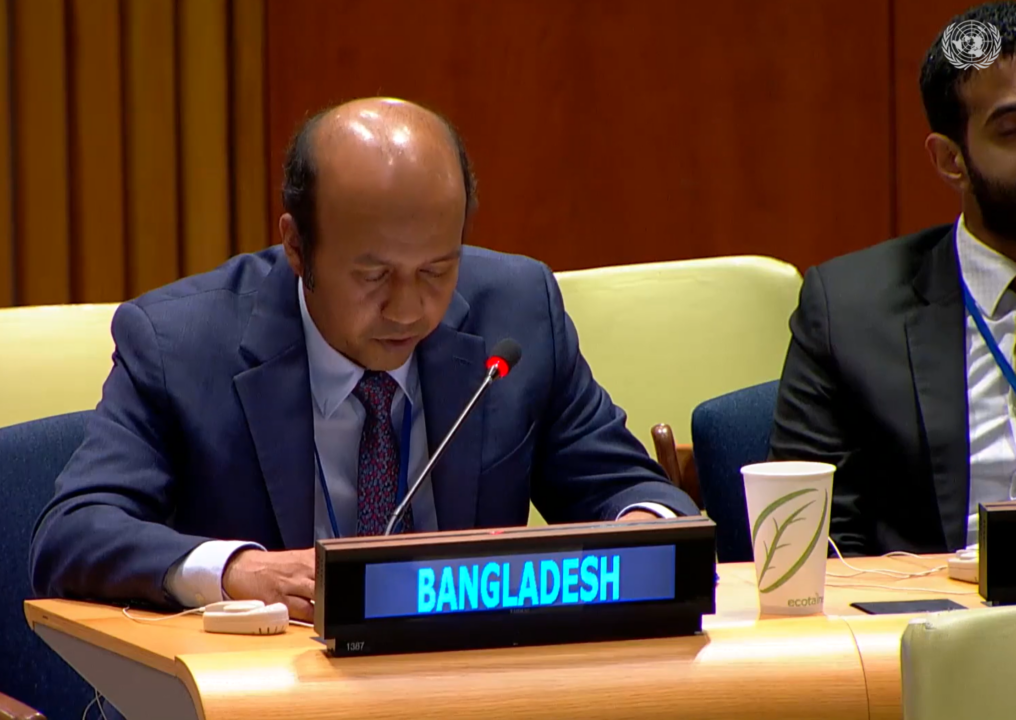Madam Chair,
My intervention is limited to Chapter VIII, Sea-level rise in relation to international law under cluster-1 of ILC Report 2023. My delegation thanks the Co-chairs of the Study Group for their excellent work in producing additional paper on sea-level rise in relation to international law. Allow me to flag three points in this regard:
First, On the issue of preservation of baseline and maritime zones in the event of sea-level rise, we would like to refer to Article 7(2) of UNCLOS Convention. It stipulates that there is no need to change the baseline if it would result in reduction of maritime zones area because of regression of low water line in the coastline. We would like to reiterate our position that Baseline and Maritime Zones established by any state in accordance with UNCLOS shall remain unchanged in the event of sea-level rise.
Second: Sea-level rise poses a significant threat to the inhabitants of low-lying coastal states, necessitating urgent measures to protect these vulnerable communities from the adverse impact of climate-induced sea-level rise. In this regard, Bangladesh welcomes the ongoing proceedings in the International Court of Justice and the International Tribunal for the Law of the Sea for advisory opinions on the legal implications of climate change and sea level rise on the rights of present and future generations.
Third, we take note of the important discussions on a wide range of issues on sea-level rise in relation to international law in the ILC report 2023 including immutability and intangibility of maritime boundaries; effects of potentials situation whereby overlapping areas of the exclusive economic zones of the opposite coastal states determined by bilateral agreements lo longer overlap; principle of the land dominates sea. We believe that these topics warrant further deliberations and intensive discussions for deeper understanding among the member states. We look forward to the final paper to be released by the Study Group in 2025.
Finally, As the constitution for the oceans, the UNCLOS remains the foundation for all human activities at ocean and sea. It provides the comprehensive legal framework within which all activities must be carried out at ocean and sea. Given the above, any views/observation of the International Law Commission regarding the interrelation between sea-level rise and international law must be in line with the fundamental principles of the Convention.
This concludes my intervention.
I thank you all.

